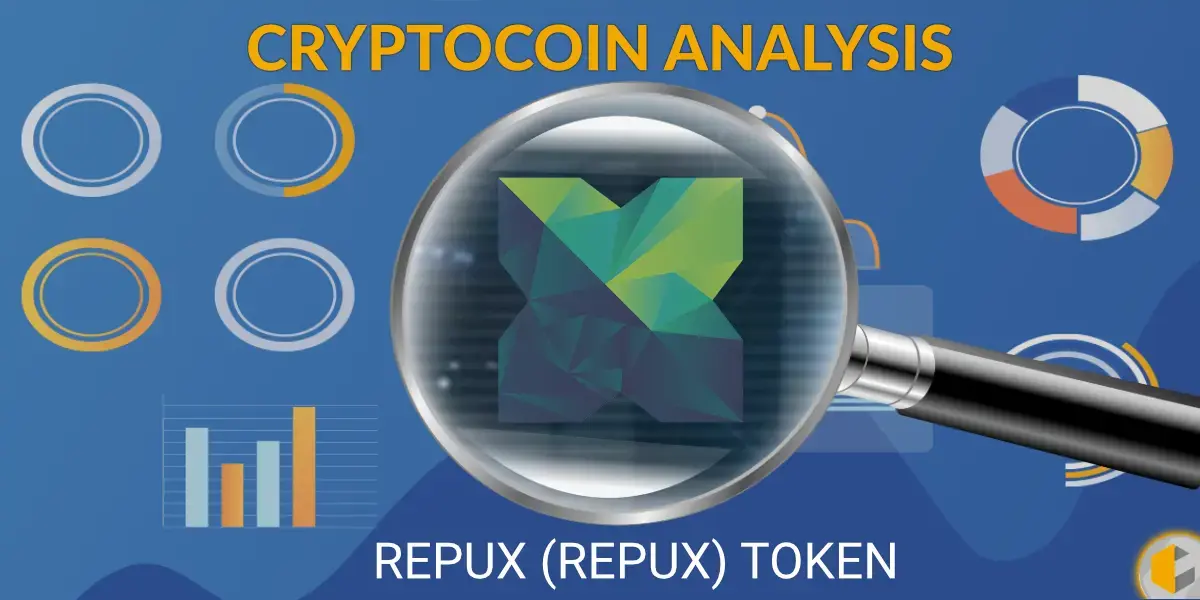
- Working product.
- Strong use case with broad applications across business, data and machine learning.
- Experienced team and panel of advisors.
- May have to change platform from Ethereum in order to scale and ensure speed.
- Marketplace will only be successful if there are sufficient numbers of buyers/sellers
- Cost of data may become unrealistic if there is not enough liquidity in the RepuX token
Repux vision is to create a protocol which facilitates the monetization of data through efficient transfers between collectors, developers and users that will also allow the evaluation of data reliability and reputation over time. Through the RepuX Protocol, data collectors could transfer data to data users or to application developers in exchange for RepuX Tokens. Developers could build upon the RepuX Protocol, and use data transferred by collectors to generate products and services which could then be transferred to end users in various industries, in exchange for RepuX Tokens. With the RepuX Protocol, they hope to bring additional value to data.
RepuX Token ICO Fast Facts
- ICO Presale/Crowdsale Start Date: Pre-sale December 2017 to 23rd January 2018 (accredited investors only), Crowdsale 6th February to 9^th^ March 2018.
- Maximum Discount: Pre-sale bonus up to 50%, Crowdsale bonus up to 30%.
- Platform: ERC20/Ethereum platform. Integration of IPSF, Sia and EOS via custom blockchain.
- Amount Raised (Valuation): Hard cap $33.1M total (@0.20USD per token) about a $1M soft cap.
RepuX Token (RepuX) Utility
RepuX aims to be the marketplace for data. It will bring SMEs (Small and Medium Enterprises) together with data scientists and developers to allow the exchange and commoditisation of anonymised data. This platform will address the disconnect between businesses who have lots of unused, raw data and data analysts/developers who can mine the data for useful insights. The Repux ecosystem will allow:
- Businesses and individuals to sell anonymised data and earn RepuX tokens.
- Developers to buy the data to analyse and train Machine Learning algorithms.
- Developers to resell their insights back to enterprises to inform better business decisions.
The RepuX protocol can be roughly broken into three layers. The top, front-facing layer consists of Decentralised Enterprise Applications (Dapps). These Dapps are written by third-party application developers on top existing RepuX APIs. Below this layer is the data layer which contains the data to be bought and sold within RepuX. This layer uses a decentralised infrastructure such as IPFS or Sia for storage. The final layer, the value layer, powers the layers above it. It allows the data in the data layer, and other good/services, to be exchanged for RepuX tokens (only, no other tokens are accepted). RepuX is based on the Ethereum infrastructure, however it is open to other protocols if scalability becomes an issue. The open nature of the data platform and the marketplace is one of RepuX’s true strengths.
RepuX is leveling the playing field by enabling SMEs to access data analytics. The border-less nature of the blockchain gives small business access to a globe of expertise that can tailor solutions to their niche. The blockchain also removes the need to rely on third parties for data set verification, which is inefficient and costly. The marketplace will have an integrity component where purchasers can give reputation scores to data providers.
The top companies in the world (Facebook, Alphabet Inc.) know the power of data and trade on its value. Unlike these companies, SMEs do not have the ability, knowledge, money or time to capitalise on their data. The RepuX protocol allows SMEs to make money selling their data and provides access to developers with data analytics skills.
In the US, small businesses make up around 45% of GDP and account for 60% of new jobs created. For Australia, SMEs make up about 1/3 of the economy. In Europe, the smaller the country the larger the proportion of SMEs. The total addressable market is well into the trillions. RepuX has applications across big data, medical records, credit scores, advertising & marketing, eCommerce, trade and more. The initial focus should be on SMEs but RepuX will allow individuals to sell their data as well, similar to what the Basic Attention Token and Brave browser are looking to do.
As the platform grows and captures more data, more use cases will emerge and perhaps the greatest application of RepuX is yet to be discovered (i.e. Google Flu Trends). The ability to create custom Dapps will help make the platform more user friendly. As machine learning and AI continue to develop, a large scale aggregated data pool will increase in value.
RepuX have a current working product, which is fairly rare in the ICO space. The marketplace platform is live, open and a working product with 3 pilot companies (WorkHQ, FungyuCPA, Dascom) already signed up. One gap I did notice was where the developers are going to come from and what will be the initial incentive for them to purchase the data. If RepuX cannot ensure the integrity of the data, developers may be reluctant to engage in the marketplace.
RepuX Token (RepuX) Team
The development team has some 70 years of development experience across Media, FinTech, SaaS, Big Data and Engineering. Between the advisors, the core team, a working platform and the partnerships currently signed up for the pilot program, RepuX looks to have a real shot at positively impacting data and how we manage it.
- David Siu CEO – Sui is acting CEO and guiding the company through the ICO. Sui is the founder of Novatron Capital with a background in software publishing at Bluecpa. Novatron has a background in investing in seed companies and taking them beyond Series Bs but now focuses on ICOs. This is one of two ICO projects that Siu is currently managing.
- Marcin Welner COO – Mr Welner has 20 years in the IT industry and provides the connection to one of RepuX’s first clients WorkHQ (Melner is also COO at WorkHQ). There is quite a bit of crossover between WorkHQ and RepuX staff which is a positive as the team has experience working together. Welner has extensive experience in running multi-level departments and large scale projects.
- Advisor Dr Jay Best - Best supports a list of crypto projects as long as my arm. Included in the list are the likes of Monero and Omisego. From MIT and with a strong research/innovation/strategy background, Best looks like a great asset for the RepuX team. He has worked in the Crypto and ICO space since 2015 and his companies have a focus on supporting projects with strong and demonstrated utility – a great endorsement of the RepuX product. Best is respected as one of the top crypto strategists in the UK.
- Advisor Douglas Pike - Pike has joined the team from the VeriCoin project where he has been since 2014. Given that the cryptocoin space is so young, his experience with bringing a cryptocoin to market is important to the team. Pike still remains with the VeriCoin project and it is unclear what the breakdown of his time across the two projects is.
The company is incorporated in the Isle of Man with the sole Director being 1David Siu.
RepuX Token(RepuX) Roadmap
The RepuX roadmap, stretching to June 2018, breaks the journey up into Operations, Outreach and Technology. Having a working product pre-ICO is a real boon for the project with the pre-sale underway and the crowdsale just around the corner.
- February 2018 OP: Token sale
- March 2018 OP: Token sale audit
- April 2018 TECH: RepuX Protocol open for developers
- June 2018 TECH: RepuX Platform Allowing for Decentralised Enterprise Applications
The whitepaperraises the possibility of transitioning the base layer protocol from Ethereum to EOS (or others) in order to achieve scalability. When and how RepuX make this change or what conditions would be a trigger for the change are not highlighted. If RepuX waits too long, they may end up in a situation where everything is fine until capacity is reached and then there is a major bottleneck. Business would likely move away from the platform if it slows too much.
RepuX Token (RepuX) Value
RepuX has a hard cap of $33.1M USD (250,000,000 tokens released before the RepuX blockchain deployed @ $0.20 USD per token, unsold tokens burnt). At $.020 USD/token, RepuX has an initial valuation of around 66.2m USD.
While there are a lot of ICOs with businesses cases, I am not aware of any that specifically target SMEs, focus on data and integrate other blockchains on the data layer. In the land of shilling, FUD and hype, RepuX has flown under the radar. I believe the team, the working platform and the potential market applications makes this a reasonably priced token and a long-term hold.
In order to achieve growth, RepuX will need to attract a robust community of businesses and developers to begin using the platform. The key milestone will be post June 2018 when developers can begin experimenting with Dapps on the protocol. RepuX already has 3 companies signed onto the platform, however there is no mention of where they will get data analysts and developers from. In order to have a functioning ecosystem, they will need to have a balance of both businesses and developers.
RepuX Token (RepuX) Transparency
The RepuX project is transparent. The whitepaper is full of code, has clearly outline vesting and internal distribution of funds. The protocol platform is live and open to whomever wishes to access it. The team have an active Telegram page and when I made some general enquiries, David Siu was kind enough to reach out in person.
With the exception of David Siu explicitly being listed as CEO on the website, I was able to gather all information easily.
RepuX Token (RepuX) Distribution
The vesting and use of proceeds is clearly outlined on the website and in the whitepaper. The founding team is getting 12%, which I believe to be an acceptable amount, with a vesting period of 3 years. The RepuX token is the only way to access the protocol, hence some supply is set aside to be sold on the platform.
- 20% Presale
- 30% Token Sale
- 10% Rewards Pool
- 23% Sold on the platform
- 12% Founding Team (3 years vesting period)
- 3% Ambassadors
- 2% Token Sale bounties
Outlined below is the distribution of pre-sale/crowdsale funding. It is great to see that most of the money will go to the continued development of the platform.
- 40% Development
- 25% Marketing
- 20% Partnerships
- 15% Operations
RepuX Token (RepuX) Summary
RepuX is a rare project that has a working product pre-ICO. The problem of businesses and their data is not going anywhere. RepuX could truly level the playing field and give SMEs critical data insights to grow and maximise their businesses. Commoditisation of data should be incentive enough to get businesses onto the platform and the B2B (business to business) applications are exciting. The team is experienced in the cryptocurrency and development space and they already have partnerships in place, giving them a great launching pad.
A strong use-case, working product and robust team are all green lights for the RepuX project. The critical area will be filling the marketplace with buyers and sellers of data. If the platform can scale up, have clean & simple user interface and ensure the integrity of data, RepuX can revolutionise the data economy.
Crypto Coin Disclosure
The author is not affiliated with the above token or with the promotion/marketing thereof.
He does not hold any tokens and has not participated in the private or public sales.
No payment or private consultation was sought for this article.
Read about our transparency requirements.
Senior Contributor
Related Posts
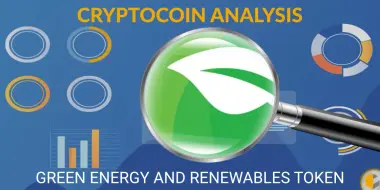
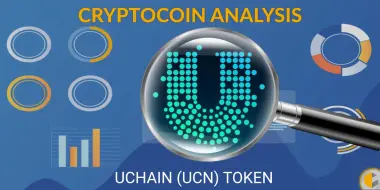
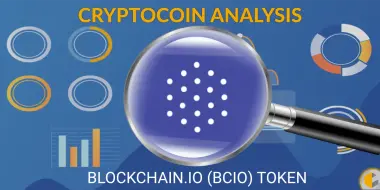
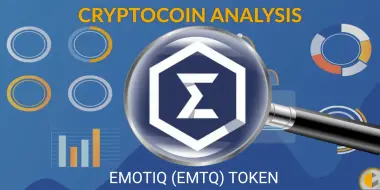
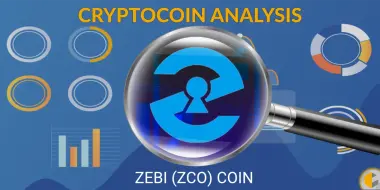
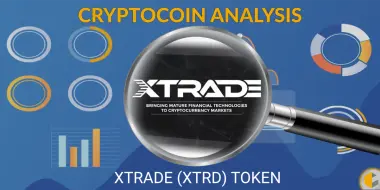
Subscribe to our newsletter!
Information




